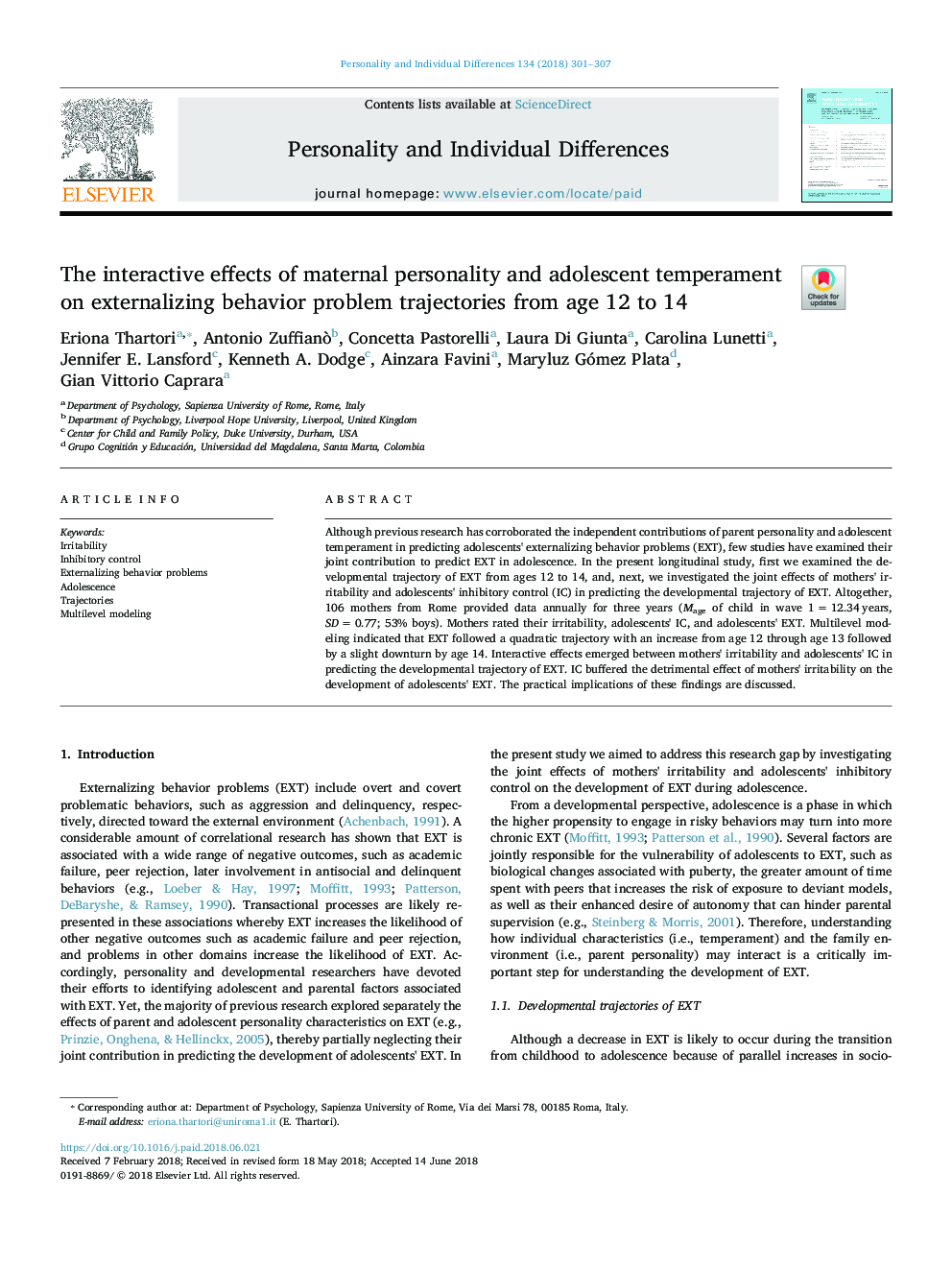| Article ID | Journal | Published Year | Pages | File Type |
|---|---|---|---|---|
| 7248465 | Personality and Individual Differences | 2018 | 7 Pages |
Abstract
Although previous research has corroborated the independent contributions of parent personality and adolescent temperament in predicting adolescents' externalizing behavior problems (EXT), few studies have examined their joint contribution to predict EXT in adolescence. In the present longitudinal study, first we examined the developmental trajectory of EXT from ages 12 to 14, and, next, we investigated the joint effects of mothers' irritability and adolescents' inhibitory control (IC) in predicting the developmental trajectory of EXT. Altogether, 106 mothers from Rome provided data annually for three years (Mage of child in wave 1â¯=â¯12.34â¯years, SDâ¯=â¯0.77; 53% boys). Mothers rated their irritability, adolescents' IC, and adolescents' EXT. Multilevel modeling indicated that EXT followed a quadratic trajectory with an increase from age 12 through age 13 followed by a slight downturn by age 14. Interactive effects emerged between mothers' irritability and adolescents' IC in predicting the developmental trajectory of EXT. IC buffered the detrimental effect of mothers' irritability on the development of adolescents' EXT. The practical implications of these findings are discussed.
Keywords
Related Topics
Life Sciences
Neuroscience
Behavioral Neuroscience
Authors
Eriona Thartori, Antonio Zuffianò, Concetta Pastorelli, Laura Di Giunta, Carolina Lunetti, Jennifer E. Lansford, Kenneth A. Dodge, Ainzara Favini, Maryluz Gómez Plata, Gian Vittorio Caprara,
